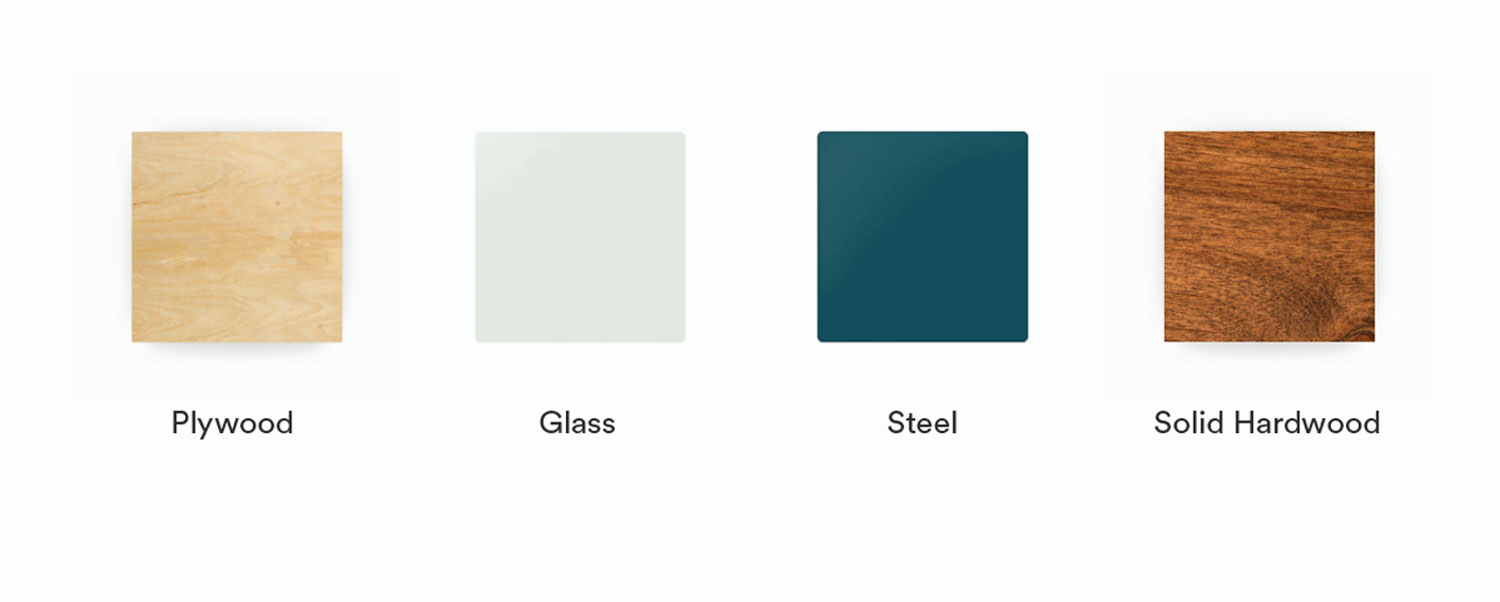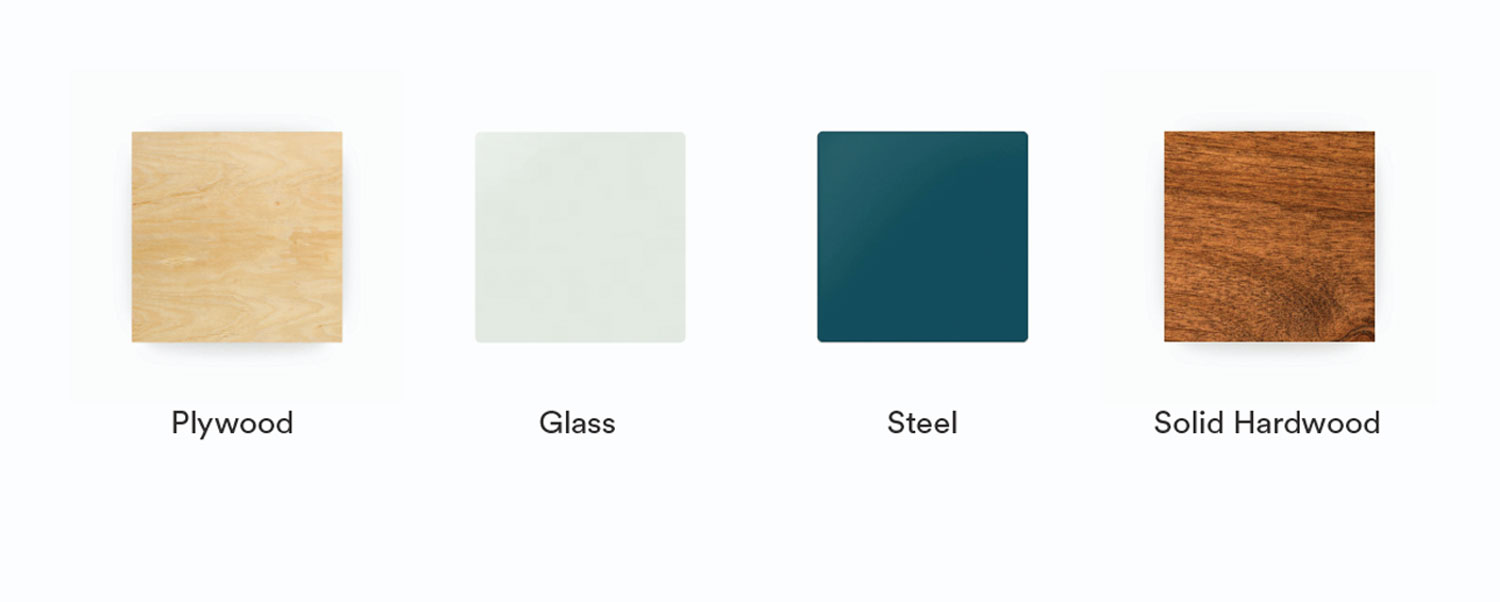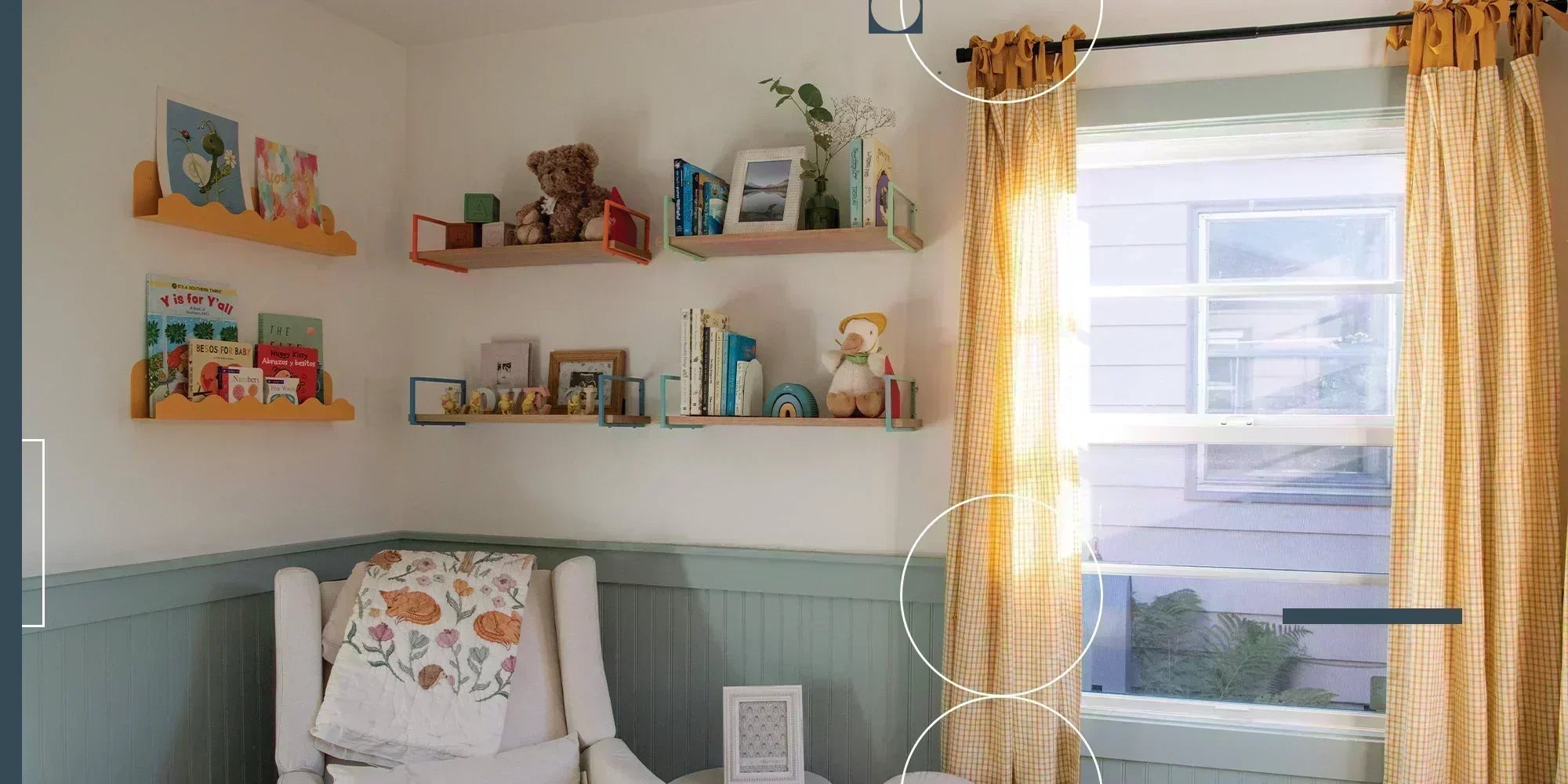Floating Shelves are an on-trend way to elevate any space! With no bulky hardware or floor space required, floating shelves create space from nothing. Find the perfect shelf material and finish to go with your furniture or wall color, and you’re ready to rock and roll. Righteous!
When it comes to choosing shelf materials, there are lots of options: Solid hardwood... solid steel... plus lots of... ahem... lesser materials... What is the right material for you? Here are the pros and cons of all the popular materials. Even MDF... (gross!).

Plywood/MDF Shelves
Pros:
- It won't warp, twist, shrink, crack or rot with age.
- Plywood faced with a good quality veneer can be stained to look like almost any wood and is easy to paint.
- Wood veneers provide a hardwood aesthetic with less cost.
Cons:
- Wood veneers are only thin slices of wood and are easily damaged.
- Like hardwoods, wood veneers can get damaged with prolonged exposure to the elements. Unlike hardwood, dings and other damage can't be sanded out of plywood.
- Wood veneers need more maintenance and must be polished to maintain durability.
Glass Shelves
Pros:
- Glass shelves allow lighting to shine through from above and below. The reflected light through the glass is often visually pleasing.
- Tempered glass shelves are generally just as durable as hardwood shelves.
- Glass is waterproof, which means it is perfect for outdoor applications. But make sure the hardware holding it is water-resistant too!
- Glass is highly resistant to the elements/humidity. High humidity and direct exposure to water do not affect the appearance of glass or change its color.
- Glass is also impervious to sunlight. Glass is not affected by direct sunlight, and will not fade due to constant exposure to sun rays.
- Easy to clean and maintain
Cons:
- Glass is see-through: you can't hide shelf hardware. Thus any glass shelf isn't considered a true floating shelf.
- Unless you use tempered glass (more expensive reinforced glass), your shelves will not be able to withstand heavy loads and can break. Choosing the right shelf support hardware for your glass shelves is crucial. Check out our guide to selecting the right floating shelf bracket.
- Price: Getting custom dimensions can be pricey. The tools and processes for cutting glass are far more complex than hardwood. Mistakes are costly.
- Glass is a slippery surface. So safely storing your expensive baubles and doodads on a glass shelf can be a challenge.
Solid Hardwood Shelves
Pros:
- Scratches and dents are repairable. Natural wear and tear often add to the character of the wood.
- Easy to maintain with some simple dusting and polishing.
- Ageless & Timeless Quality. Hardwood is the real deal; it's gorgeous and, depending on the type of wood, can seriously level up your home's aesthetics.
- One of the biggest benefits of solid wood shelves is their durability. With proper care, solid wood shelving can last a lifetime.
Cons:
- Vulnerable to moisture and humidity.
- More Expensive.
Steel Shelves
Pros:
- Massive weight capacity when installed correctly.
- Easy to maintain with simple dusting and polishing.
- Powder coats are durable, come in lots of colors, and will last a long time.
- Razor-thin shelves. Like ¼” or less thin.
Cons:
- Heavy. Like... crazy heavy.
- Powder coating is easily scratched by sharp or coarse objects.
Need more guidance? Here are a few related guides from our friendly neighborhood Shelfologists:
- How to choose the perfect hardwood species for your shelves.
- How to Install a Floating Mantel Series. Part One: Mounting Over Sheetrock
- Nine Totally Capacious Planning Tips For Your Floating Shelf Project!
Need more help?! No problemo! Get in touch with our uncommonly friendly and oddly attractive Shelf Support Squad today.
Shameless Plug: Shop Heavy Duty Solid Hardwood + Solid Steel Floating Shelves by Shelfology
Are you looking for crazy heavy-duty floating shelves made from only the raddest materials? Check out our full catalog of floating shelves and floating shelf brackets. No MDF here!




Share:
How to Install a Floating Mantel Series. Part One: Mounting Over Sheetrock
9 Tips for Planning Your Floating Shelf Project